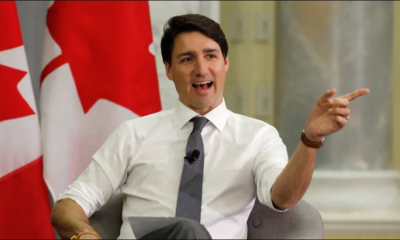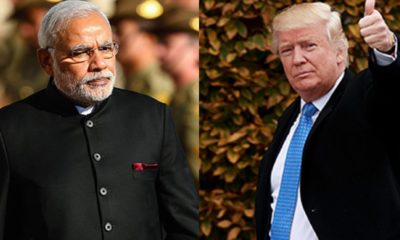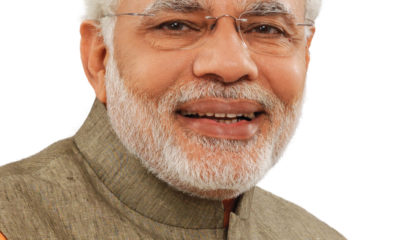World
Asia’s security must not be based on ‘intimidation’: Obama

Brisbane: Security in the Asia-Pacific region must depend on international law and the peaceful resolution of disputes, not on “intimidation”, said Saturday ahead of the G20 summit here, media reported.
Addressing students in Brisbane, Obama emphasised that Asia’s security must be based on mutual alliances and big nations must not bully smaller ones, according to the reports.
“We believe… that any effective security order for Asia must be based not on spheres of influence, coercion or intimidation, where big nations bully the small, but on alliances for mutual security, international law and… the peaceful resolution of disputes,” Obama was quoted as saying.
He warned of the dangers posed by territorial disputes in the South China Sea, where Beijing’s perceived assertiveness has raised concern among its neighbours.

There was “no question” over US’s commitment to its Asia-Pacific allies, Obama added.
President Obama said Russia’s “aggression” towards Ukraine was a “threat to the world”, citing the downing of the Malaysia Airlines flight MH17 last July.
Putin was earlier attacked by both Australian Prime Minister Tony Abbott and British Prime Minister David Cameron over what the West believes to be Russian complicity in the downing of the flight.
Thirty eight Australians were among the 298 people who died when the plane was brought down over rebel-held eastern Ukraine, by a missile that the West believes was supplied by Russia. However, Russia stridently rejects the claim.
Abbott, who discussed the issue with Putin in Beijing earlier this week, described Russia’s actions in Ukraine as part of a “regrettable pattern” and that Russia should aspire to be a superpower “for peace, freedom and prosperity” instead of “trying to recreate the lost glories of tsarism or the old Soviet Union”.
Obama used this speech to also announce that the US would contribute $3 billion to an international fund to help poor countries cope with the effects of climate change.
World
Lockdowns in China Force Urban Communities to Defy Censorship and Vent Frustration Online

Shanghai’s rich middle class is leading a wave of online dissent over the strict and prolonged lockdowns imposed in various parts of the country. Chinese internet censorship is struggling as patience is wearing thin in many urban centers, coming up with creative forms of online protests.
Social Media Posts Revealing Lockdown Tension in Shanghai
Drawn-out lockdowns are nothing new in China as authorities insist with the nation’s zero-Covid policy since the start of the pandemic. Currently over This time around, however, metropolitan areas like Shanghai are increasingly difficult to keep quiet, given that its more than 25 million residents have seen weeks of total isolation along with food shortages and many other service interruptions.
Dozens of towns and reportedly over 300 million Chinese citizens have been affected by lockdowns of different severity. As expected, urban netizens have been most outspoken over their difficulties by finding creative ways to get around state censorship and bans placed on topics, news comments and spontaneous campaigns.
Shanghai residents have been using mobile proxies and hijacking seemingly unrelated hashtags to talk about healthcare issues, delivery failures and the overall severity of their situation. The “positive energy” that the Chinese government wants to transmit during the recent prolonged series of lockdowns does not come naturally to those counting food supplies and online censors are working hard to filter words, trending topics and undesired social media sharing.
WeChat groups and message threads are under constant monitoring. Posts questioning the zero-Covid approach have been quickly deleted, including by leading Chinese health experts like Dr. Zhong Nanshan. Video footage is soon censored and protests and investigations are quickly made to disappear.
Where this has not worked, officials have exposed banners with warnings and outright threats like “watch your own mouth or face punishment”, while drones have been patrolling the city skies. Yet, if anything, this has led to further tensions and unspoken confrontation with Shanghai’s educated and affluent middle class.
Creative Online Solutions Harnessing Civic Energy
Announcements by Chinese social media that they would be publishing the IP addresses of users who “spread rumors” have not helped either. Tech industry research has shown that much of Asia’s tech-savvy population has a habit of using mobile proxies and other privacy tools, quickly finding workarounds to browse the internet freely and talk to the world about the hottest topics.
The sheer volume of forbidden posts is already a challenge for the very censorship system, experts explain. Unable to track all trending hashtags, state workers overlook topics that speak about the US, Ukraine or other popular news. Linking human rights elsewhere to their situation, Chinese online dissidents establish their informal channels and “hijack” the conversation to share personal or publicly relevant information about the Covid suppression in their town.
Sarcastic and satirical posts still dominate. Others hope to evade the censors by replacing words from famous poems or the national anthem. One thing is certain – social media, when harnessed with the right creativity, has proven its ability to mount pressure on the government in even some of the most strictly controlled tech environments like China.























